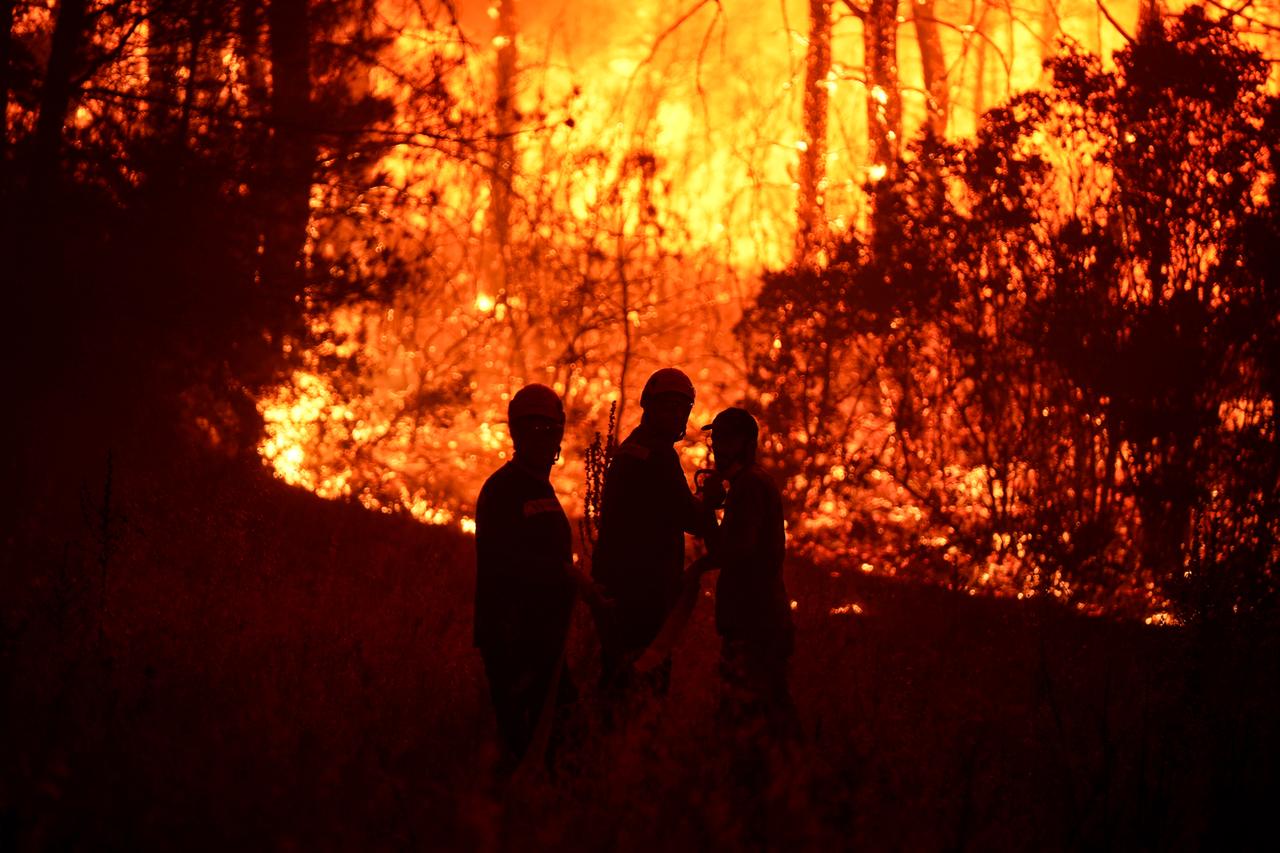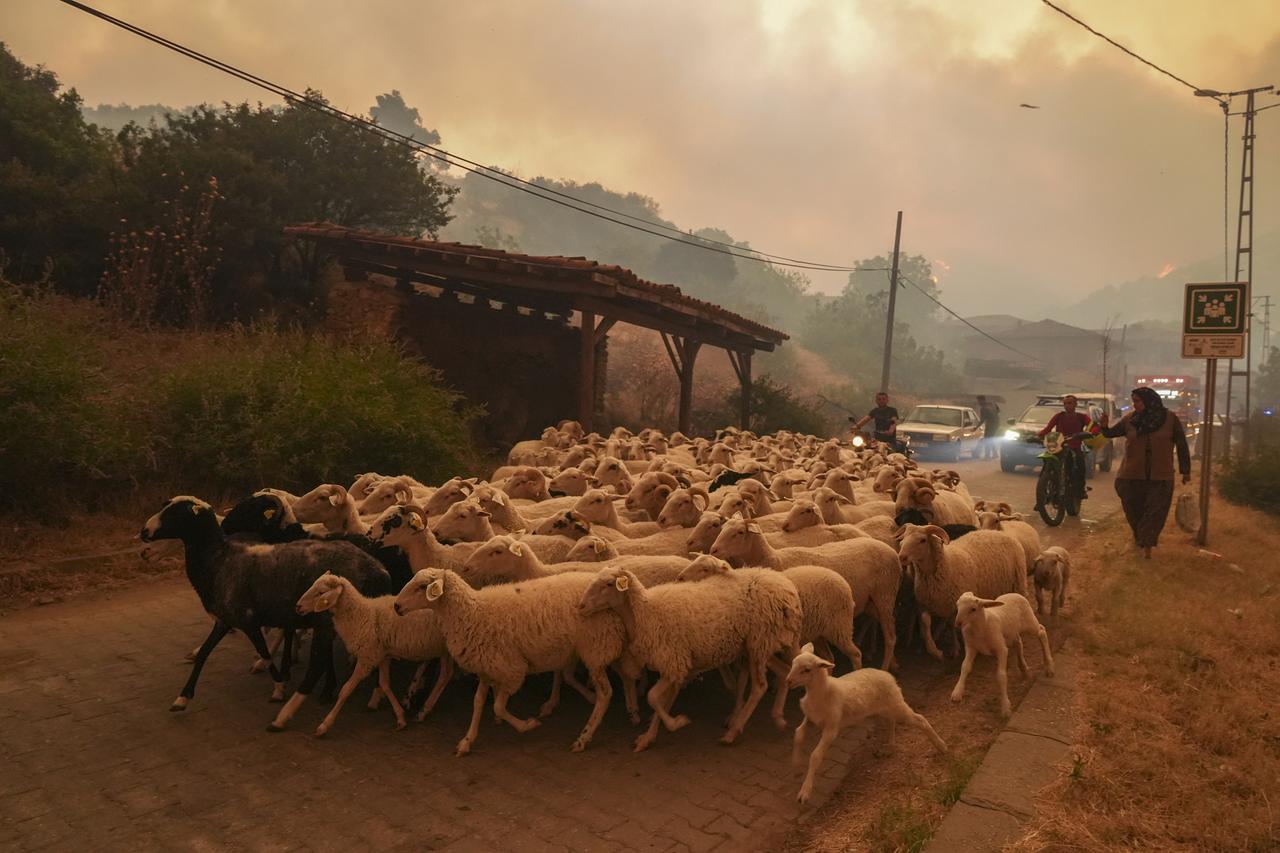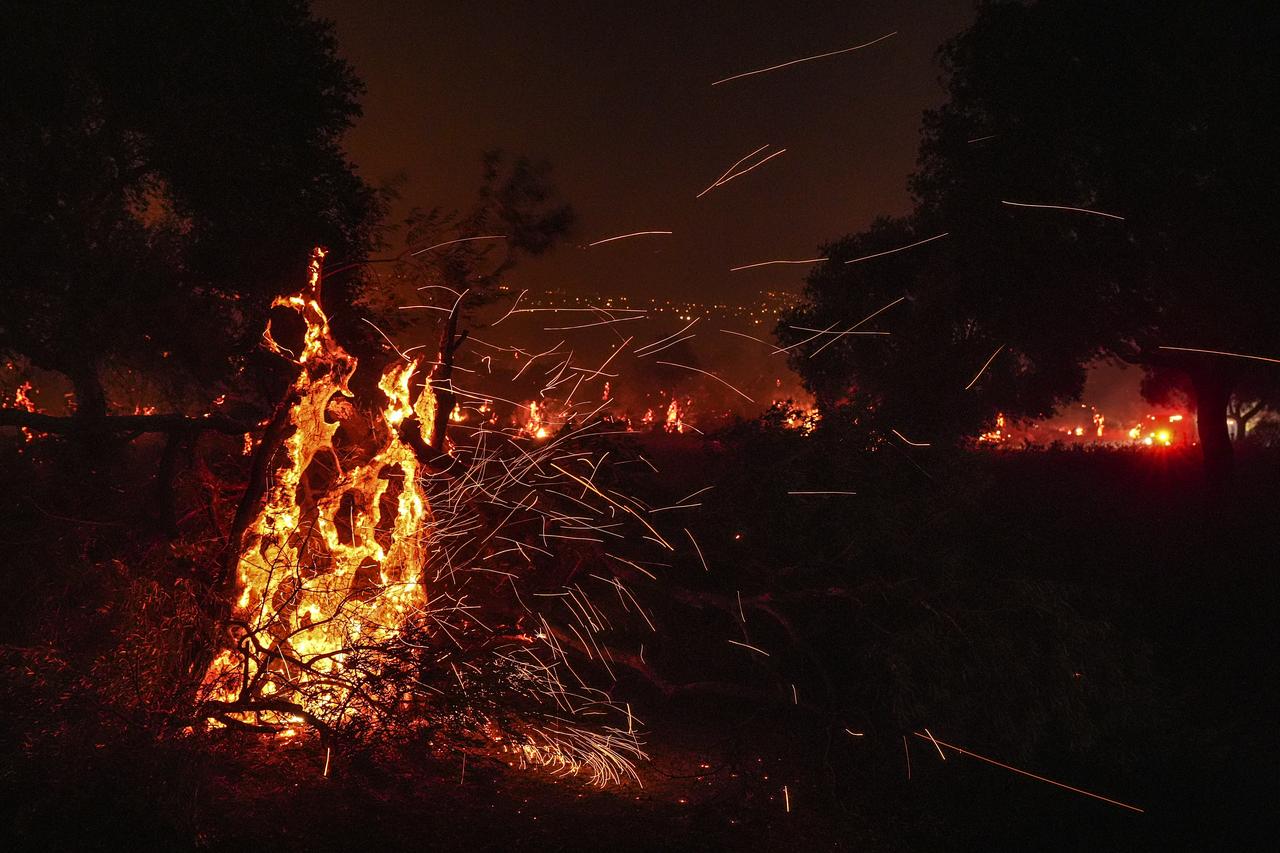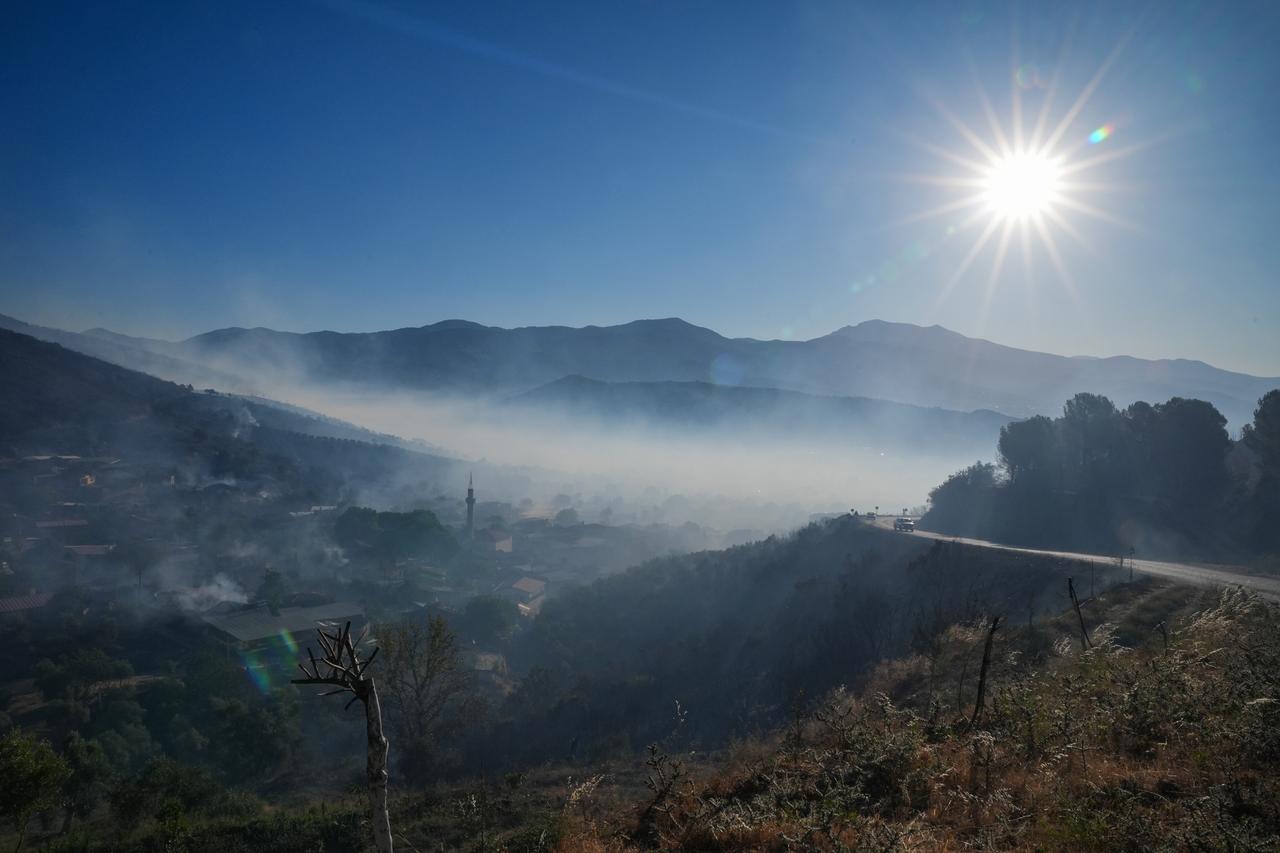
In June 2025, large-scale wildfires erupted across forested areas near Izmir, one of Türkiye’s key western provinces. Fueled by soaring temperatures, prolonged drought, and dry winds, the fires destroyed more than 3,500 hectares of vegetation in just two days, according to Türkiye’s General Directorate of Forestry. Emergency teams acted promptly;however, the fires highlighted the accumulating climate-related threats facing Mediterranean areas, such as the Aegean, which are now appearing more frequently each year.
Authorities stated that the blaze in the Menderes district was one of the worst witnessed during this wildfire season. It intimidated the neighborhood settlements, stopped the traffic on several roads, and resulted in the evacuation of more than 500 people. Agriculture and Forestry Minister of Türkiye Ibrahim Yumakli confirmed the fact that there have been no reported injuries to civilians and has counted major losses to olive crops and rural assets during a press briefing that was aired on June 26.

Helicopters and aircraft involved with firefighting activities were dispatched early in the morning after detecting the fires by satellite and surveillance systems. The scene was deployed by more than 1,200 personnel of the Izmir Regional Directorate, Disaster and Emergency Management Authority (AFAD), gendarmerie units, and local municipalities. The coordinated operations involved more than 15 aircraft and 80 fire trucks.
Volunteers and local residents also helped out by providing water and necessities to the fire brigades and forming firebreaks from any material they could find to prevent the fire from approaching the inhabited areas. The families that had to leave went to temporary shelters set up in schools and other legal buildings nearby.

Türkiye has witnessed a steady increase in wildfire frequency over the past five years. According to the Meteorology Authority, western provinces now face an average of 15-20 days of extreme heat conditions annually, up from just six days in 2010. In Izmir, average summer temperatures have risen by nearly 1.7 degrees Celsius over the past 20 years, contributing to drier soil and more flammable vegetation.
This year, Türkiye experienced one of its driest springs on record. The Turkish State Meteorological Service indicated that there had been precipitation levels that were 40% below seasonal averages in Aegean provinces from March up to May 2025. This exposed forests in Izmir and other neighboring districts to the fires that spread at high speed.
Environmental experts link these shifts directly to the broader climate crisis. Dr. Esra Gultekin, an environmental scientist at Ege University, explained that Mediterranean countries including Türkiye are in a “climate hotspot.”
“Droughts, heat waves, and longer summers are combining into a dangerous pattern. Wildfires are becoming more intense and unpredictable,” she said.
The Izmir wildfires have rubbed salt into the old wound of discussing whether Türkiye is adequately prepared to handle the threat of climate change and have a mitigation strategy to counter them in the long or short term. Although the improvement of early warning systems and the increased aerial firefighting fleet of government agencies have recently occurred, experts believe that more profound structural changes are necessary.
Among the priorities is rebuilding fire-resistive infrastructure in rural places. Well-defined evacuation strategies and fireproof standards of buildings are still lacking in many villages that are connected to forests. The other one is educating the communities about fire prevention and risk awareness. According to a recent report by the Chamber of Environmental Engineers of Türkiye, 64% of the rural population in high-risk areas lacks knowledge of emergency procedures.
Nongovernmental organizations (NGOs) that focus on climate also demand better management of the land. There is often a delay in the re-establishment of forests after wildfires, and maximizing species is also a result of monoculture during the process of replanting in burnt forests which increases the susceptibility of forests to wildfires in the future. Conservationists advocate the use of a variety of local, indigenous plant species that hold more water and pose less fire propagation.
International cooperation is also increasing. As part of the EU’s Civil Protection Mechanism, Türkiye participated in joint wildfire drills this year with Greece and Bulgaria, aiming to improve cross-border coordination and information sharing.

The wildfires occurring in Izmir in June are not an isolated case; they indicate a tendency for the region to be endangered, which needs to be addressed quickly by Türkiye. With another hot and dry summer coming to the country, natural disasters under the influence of climate are becoming a trend in the changing order.
Building climate resilience will require a combination of stronger local awareness, improved policies on the use of land, and more rapid response processes. Although the emergency response to the fires that occurred in Izmir was swift and properly organized, the extent of the damages indicates that the climate approach adopted in Türkiye should become more preventative rather than reactive.
The lessons from Izmir underscore the need for early action, public engagement, and long-term adaptation planning. With effective coordination between national institutions, municipalities, civil society, and international partners, Türkiye can better protect its landscapes and communities from the intensifying impact of climate change.